In today’s agricultural industry, farmers are looking for fertilizers that not only boost crop yields but also maintain soil health. The organic-inorganic NPK fertilizer production line answers this need by producing fertilizers that combine the benefits of organic matter with the balanced nutrient composition of NPK (Nitrogen, Phosphorus, and Potassium). Unlike traditional chemical fertilizers, organic-inorganic NPK fertilizers improve soil structure, enhance microbial activity, and provide immediate nutrient availability. With growing awareness about sustainable farming, more producers are investing in organic compound NPK fertilizer production lines to serve markets that value high-quality, eco-friendly fertilizers.
Suitable Raw Materials for the Production Line
The organic-inorganic NPK fertilizer production line can process a variety of organic and inorganic materials, including:
Organic components: poultry manure, cattle manure, pig manure, crop straw, green waste, composted food waste
Inorganic components: urea, monoammonium phosphate (MAP), diammonium phosphate (DAP), potassium chloride, potassium sulfate
Additives: humic acid, amino acids, trace minerals
The combination of these materials produces an organic NPK compound fertilizer that delivers long-term soil improvement and immediate nutrient release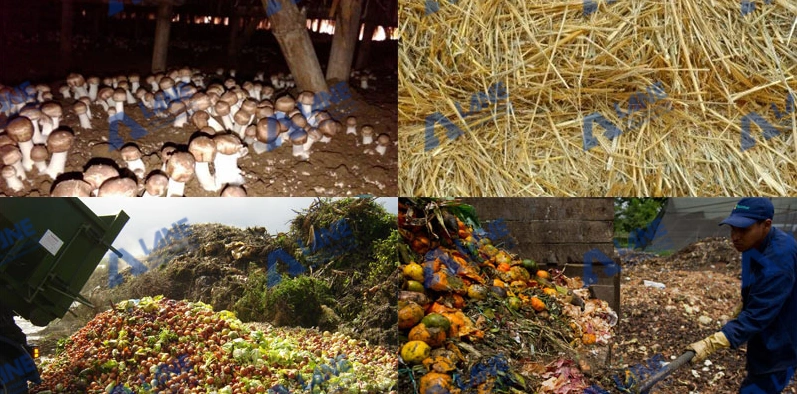
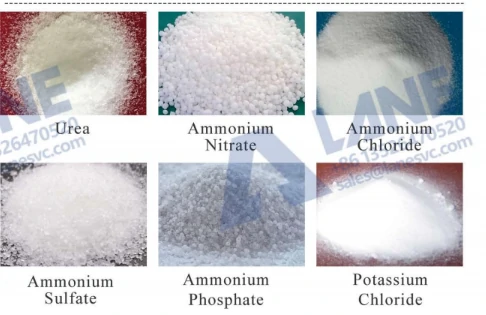
How the Organic-Inorganic NPK Fertilizer Production Line Works
A modern organic-inorganic NPK fertilizer production line follows a carefully designed sequence to ensure every batch is uniform, nutrient-rich, and ready for market. The process blends precision formulation with robust mechanical handling, making it possible to produce high-quality fertilizers efficiently.
1.Precise Batching of Raw Materials
The process begins with a dynamic batching machine, which meters each ingredient according to the fertilizer recipe. Organic material, such as composted poultry manure, is mixed with inorganic nitrogen, phosphorus, and potassium (NPK) nutrients, such as urea, monoammonium phosphate (MAP), diammonium phosphate (DAP), and potassium sulfate. This batching stage ensures that the nutrient ratios meet the needs of specific crops and soils.
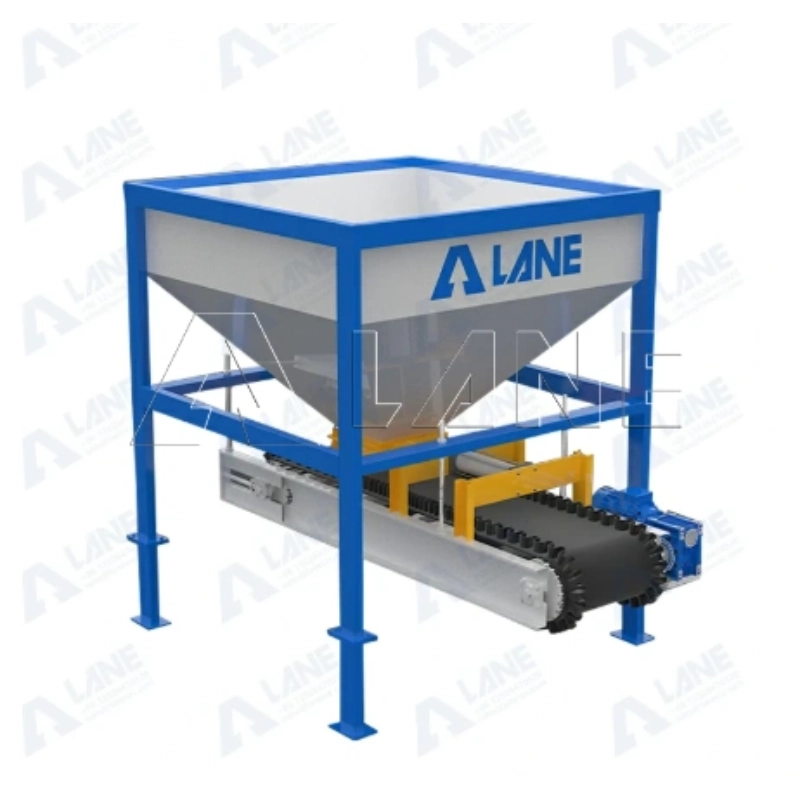
2.Crushing for Uniform Particle Size
After weighing, the raw materials are fed into a semi-wet material crusher or vertical shaft crusher. This step breaks down the composted manure, crop residues, and mineral particles into uniform, fine particles, improving mixing efficiency in the next stage. This uniform particle size also ensures smoother pelleting in subsequent processes.
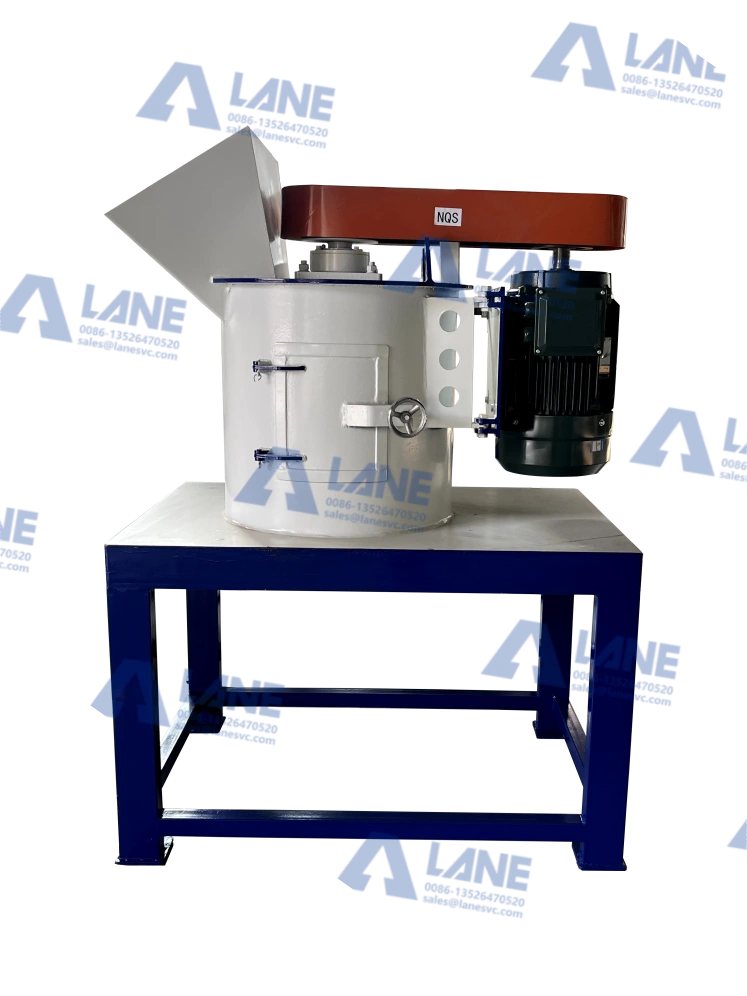
3.Homogeneous Mixing with a Horizontal Mixer
Finely ground raw materials are fed into a horizontal mixer, which thoroughly blends the organic and inorganic components. This mixer utilizes parallel rotating shafts to achieve uniform mixing, ensuring each pellet contains the correct ratio of nutrients. The result is a stable base mix ready for pelleting.
4.Granulation – Double Roller Dry Granulation
The blended material is then transferred to a double roller granulator for dry granulation. Unlike wet granulation methods, this process does not require water or steam, making it energy-efficient and ideal for moisture-sensitive materials. The machine compresses the powder into compact granules with uniform shape and size, ready for drying and screening. Dry granulation also reduces drying time and helps maintain nutrient integrity.
5.Drying & Cooling
Even though dry granulation minimizes moisture, granules may still contain residual humidity. A rotary drum dryer gently removes excess moisture, while a rotary cooler lowers the granule temperature to prevent clumping during storage.
6.Screening for Quality Control
The dried granules pass through a rotary drum screening machine to separate undersized and oversized particles. Only granules that meet the quality specifications are sent forward for packaging. Rejected particles are recycled back into the crushing or mixing stage.
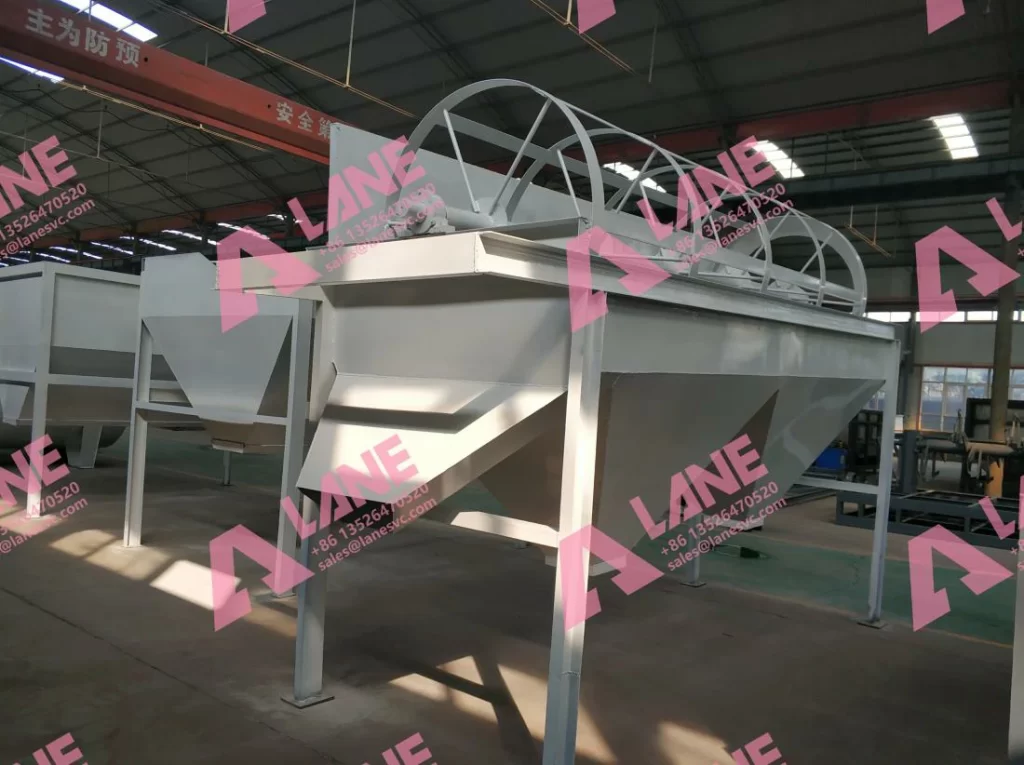
7.Optional Coating & Packaging
A coating machine applies a protective layer to improve storage stability and reduce dust. Finally, an automatic packaging machine completes bagging and sealing to ensure consistent product appearance.
Advantages of LANE’s Organic-Inorganic NPK Fertilizer Production Line
When investing in a fertilizer production plant, what you need is equipment that can stably provide high-quality, efficient operation and long-lasting durability. LANE’s organic-inorganic NPK fertilizer production line is designed with this concept in mind, and its advantages can directly affect productivity and profitability.
1.Flexible formulas to meet diverse market demands
The LANE system supports multiple formulas. Whether your market requires high-nitrogen compound fertilizers, balanced NPK ratios, or special formulas rich in trace elements, this production line can handle them all with ease. This flexibility enables you to quickly adapt to seasonal crop needs and changing market trends, thus maintaining the competitiveness of your products.
2.Consistent high-quality granules
The combination of precise ingredient blending, efficient mixing and advanced double-roller granulation technology enables the production of granules with uniform size, shape and nutrient distribution. This enhances field application effectiveness and ensures reliable results for farmers with each use. The robust, dust-free granules also reduce product loss during handling and transportation.
3.Energy conservation and cost reduction
The double roller granulator performs dry granulation, minimizing additional drying time and thus reducing energy consumption and operational costs. The optimized material handling system further reduces waste and downtime, making the production process more economical in the long run.
4.Low maintenance cost, long service life
Every machine of LANE is designed with durability in mind. Components in high-wear areas are made of wear-resistant steel, and the simple and user-friendly design makes daily maintenance quick and convenient. Reducing maintenance not only lowers costs but also maximizes the normal operating time of the equipment.
5.Scalable, Adaptable to Different Production Capacities
Whether you are starting with a small factory for local distribution or building a high-capacity facility for regional supply, LANE can provide scalable solutions. We customize organic NPK compound fertilizer production lines based on your target output, from small batches to annual production exceeding 200,000 tons.
6.Global Compliance, Proven Reliability
Our equipment complies with CE certification standards and is trusted by fertilizer producers in over 20 countries/regions. LANE has extensive successful installation experience and offers technology that operates consistently under various climatic conditions, raw materials, and operational parameters.
Actual Application Case – Southeast Asia
A large fertilizer producer in Southeast Asia wanted to expand its environmental protection product business. They installed a 50,000-ton-per-year LANE’s organic NPK compound fertilizer production line. This production line uses poultry manure as the organic substrate and mixes potassium sulfate, diammonium phosphate, and trace elements to create high-value organic-inorganic NPK compound fertilizers specifically tailored for rice and vegetable growers.
Within six months:
Due to efficient processing and reduced waste, the production cost has decreased by 18%.
Sales increased by 35% as farmers preferred the improved soil-conditioning properties
The company has obtained new export contracts in the neighboring country.
Why Choose LANE for Your Fertilizer Production Line
Selecting the right partner for your fertilizer plant will determine the long-term success of your business. LANE has decades of engineering expertise and a proven track record in delivering fertilizer production line projects globally. From concept to completion, we offer efficient, reliable and tailor-made solutions to meet your needs.
Turnkey Solution – LANE offers comprehensive turnkey services covering every stage of the project. Our team will assist you in factory layout design, equipment selection, manufacturing, installation and commissioning. We also provide on-site operator training to ensure that your organic-inorganic NPK fertilizer production line can operate smoothly from the very first day.
Customized Engineering – Each fertilizer producer has unique requirements. Whether you need a small factory with an annual production capacity of 5,000 tons, or a large industrial facility with an annual production capacity of over 200,000 tons, we can design a fertilizer production line that meets your specific raw materials, formulation, and production target.
After-sales support – Our commitment goes beyond just installation. LANE offers continuous technical support, spare parts supply, and process optimization services. We work closely with you to ensure that your fertilizer production line maintains optimal efficiency, minimizes downtime, and maximizes profitability.
Global Experience – LANE has successfully completed projects in over 20 countries/regions, covering a wide range of projects from small organic fertilizer factories to large NPK compound fertilizer production lines. Our equipment is designed to operate reliably in various climates, raw material conditions, and regulatory environments, ensuring that you can always achieve consistent results anywhere.
LANE integrates innovative engineering with rich industry experience to offer production lines that meet the current demand for high-quality and environmentally friendly fertilizers, while also providing you with the flexibility for future development.
Frequently Asked Questions (FAQ)
1.What is an organic-inorganic NPK fertilizer production line?
The organic-inorganic NPK fertilizer production line is a complete processing system designed to combine organic materials (such as composted manure) with inorganic NPK nutrients (nitrogen, phosphorus, and potassium). The resulting fertilizer can not only improve soil health but also provide essential nutrients for crop growth.
2.Which raw materials can be used in the production process?
You can use various raw materials, including poultry manure, cow manure, crop residues, green waste, urea, potassium sulfate, mono-ammonium phosphate (MAP), diammonium phosphate (DAP), and trace minerals. The flexibility of the formula is one of the main advantages of the organic NPK compound fertilizer production line.
3.What production capacity options does the LANE fertilizer production line offer?
LANE provides equipment for small farms with annual production of several thousand tons up to industrial-scale factories with annual production of over 200,000 tons. We can customize your granular organic fertilizer production line according to your production volume and formulation requirements.
4.How does organic-inorganic compound fertilizer improve soil health compared to chemical fertilizers?
Chemical fertilizers provide nutrients, but they have little effect on improving soil structure or microbial activity. In contrast, the fertilizers produced by the organic fertilizer production line using the NPK formula can not only provide immediate nutrients but also organic matter, thereby improving soil aeration, water retention, and long-term fertility.
5.Does LANE offer the installation and training of production lines?
Yes. LANE offers turnkey solutions, including factory design, equipment installation, operator training and after-sales support. Our goal is to ensure that your organic compound fertilizer production line runs smoothly from the very first day and continues to operate efficiently for the next several years.
The organic-inorganic NPK fertilizer production line offers a sustainable way to produce fertilizers that benefit both crops and soils. By integrating organic matter with the balanced nutrients of NPK, these fertilizers improve soil fertility, increase yields, and meet market demand for eco-friendly products.With LANE’s engineering expertise, advanced technology, and reliable after-sales service, you can set up a granular organic fertilizer production line or organic NPK compound fertilizer production line that meets your production goals, reduces costs, and maximizes profitability.
For more details, please feel free to contact us.
Henan Lane Heavy Industry Machinery Technology Co., Ltd.
Email: sales@lanesvc.com
Contact number: +86 13526470520
Whatsapp: +86 13526470520